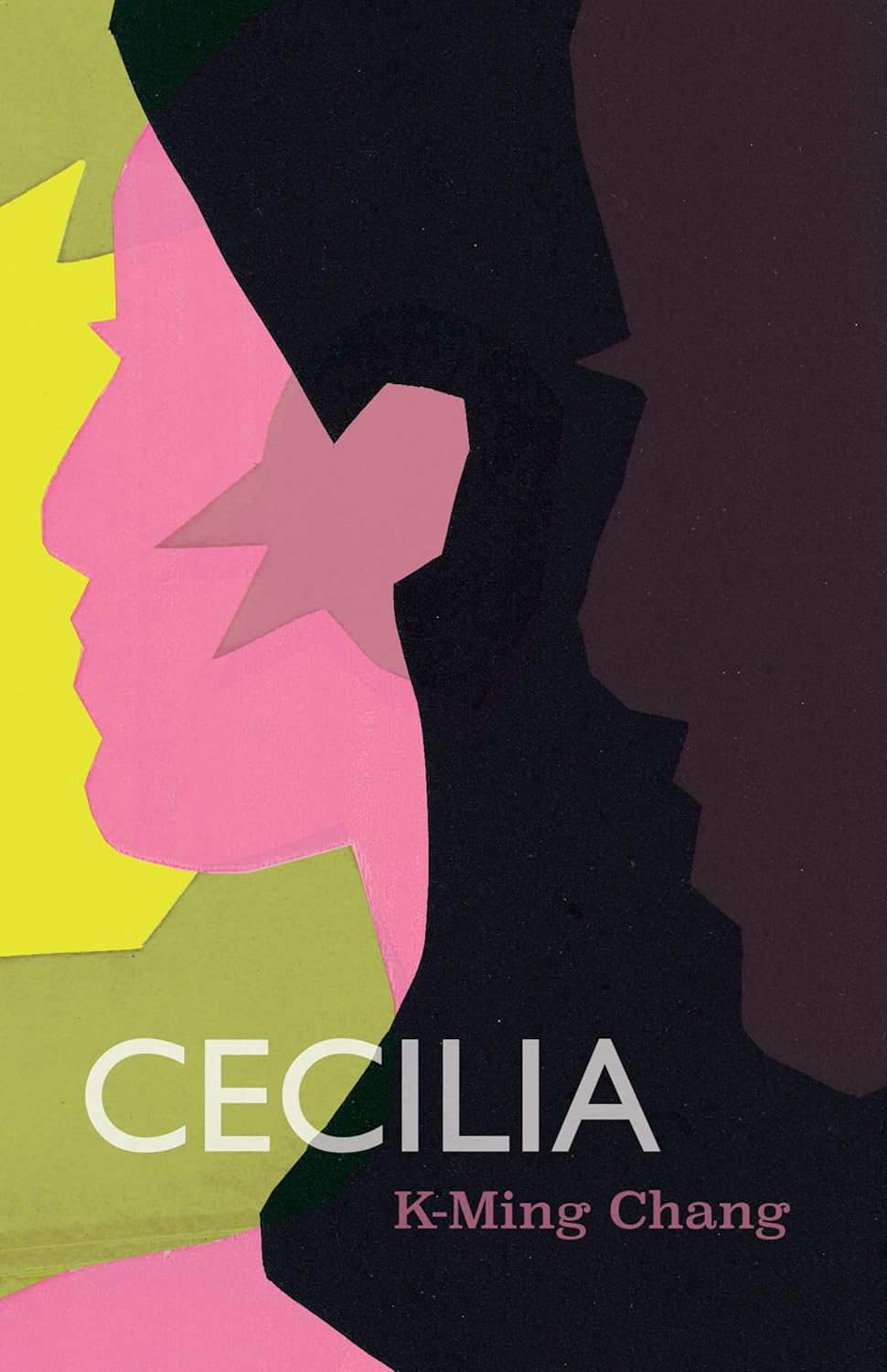Review of Cecilia by K-Ming Chang

Cecilia
K-Ming Chang
Coffee House Press, 2024, 144 pages
$14.95
Reviewed by Gabe Tejada
Reading Cecilia was like suffering an ingrown toenail that causes blood and pus to ooze from tender flesh, concocting a putrid stench that haunts the nostrils as much as the pain of a pierced toe haunts the foot. I’ll stop with the figurative dramatics, though, if you enjoy that kind of writing, this novella by K-Ming Chang might just be for you.
Told through (or unfolding in the mind of) the main character and narrator, Seven, Cecilia is about that universal lesbian experience: the obsession with our first ‘situationship.’
Let me sing my praises before I turn you off the work. Chang triumphs in how she depicts and weaves together those forces in our lives that live just beyond the tangible. The sublimation—through Chang’s surreal prose—of cultural expectations, familial tensions and self-repressions that Seven experiences lend the story an almost instinctual telling. It is as if Seven’s “objective” reality, filtered through their perspective, was distilled into its purest (and therefore most visceral and animal) form. By dissolving the divide between internal and external, Cecilia’s reality becomes a new plane of existence—a third place resulting from the cross-contamination between the physical world and the psyche.
To read Cecilia is to step into Seven’s skin. This intimacy with Seven’s interiority makes the narrative more immediate. I felt the familial claustrophobia of an immigrant family whose embrace is as comforting as it is suffocating. I recognised those same bonds between Seven and their Ma and Ama—that cutting comfort between the women in the family. I yearned, just as Seven did, for “a boyhood for my bones” (65). Chang rends the stereotype of the submissive and docile Asian woman, with Seven even perceiving themself as a predator and consistently transgressing the bounds of appropriate feminine behaviours and desires.
Ultimately, though, I thought that Cecilia was better as a short story. The narrative was mired in a futile orbit, prolonged for the sake of semantical experimentation. I am, however, doubtful of this experiment’s success. Chang’s evocations of obsession were more iterative than generative. Each analepsis neither provided us with greater insight on just what made Seven so enamoured by and beholden to Cecilia—other than the fact that Cecilia was a manic pixie ‘Quirky Girl’—nor gave new insight or perspective on dyke yearning/co-dependency.
The only discernible progression in the narrative was that Seven licked Cecilia’s sweat in the first part of the book and then eventually consumed a speck of Cecilia’s shit towards the end of it. Perhaps a commentary about the repulsiveness of an all-consuming, unrequited sapphic love? Even Seven’s realisation that they might be the prey falls flat. The story is in Seven’s focalisation, so the reader recognises that there is a naiveté in them that is particularly un-predator-like, and very little resistance or interrogation opposed what Cecilia says and does.
But despite this less-than-positive introduction to Chang’s written work, I’m still keen to read more of her.
Gabe Tejada is a Filipino reader and writer based in Naarm. His work has been published by Archer Magazine online and Kill Your Darlings (KYD), among others. You can find him reading queer books on the 58 tram, going for aimless walks, and eating camembert stuffed croissants.
"Empowerment comes from ideas."
― Charlene Carruthers
"Your silence will not protect you."
— Tourmaline
"Gender is the poetry each of us makes out of the language we are taught."
— Leila Raven


